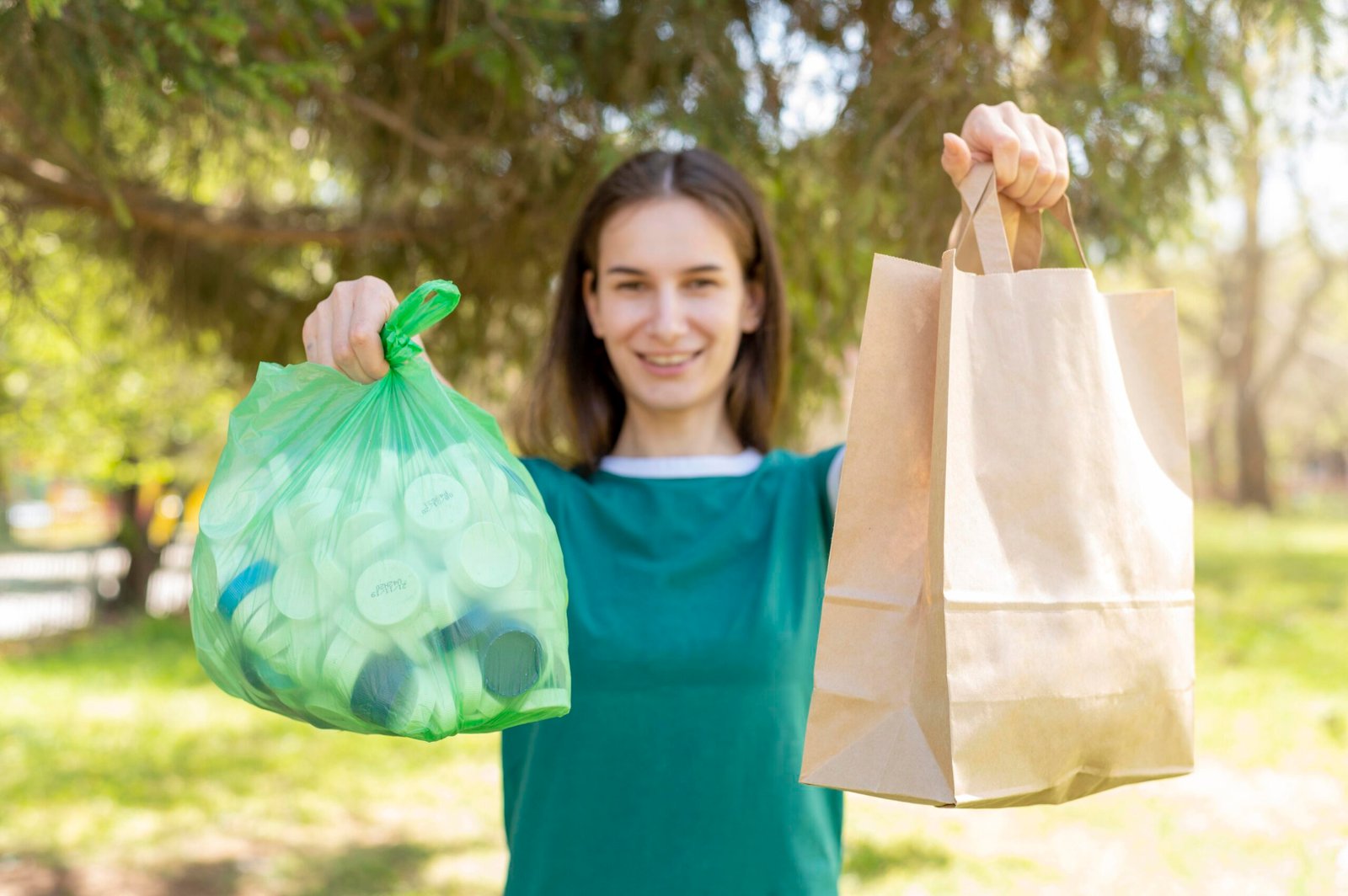When we think of eco-friendly alternatives, the first thing that pops into our heads is usually paper bags. They’ve become a symbol of sustainability—easy to carry, biodegradable, and way better than plastic, right?
Well… not always. Especially when it comes to wet waste disposal, paper just doesn’t cut it. If you’ve ever tried putting your kitchen scraps or food leftovers into a paper bag, you probably already know what I mean—it turns into a soggy mess before you even get to the bin.
So, let’s talk about why paper bags for wet waste aren’t the smartest idea, and what options actually work better.
What Counts as Wet Waste?
Before we dig in, let’s clear this up. Wet waste usually includes:
- Vegetable peels and fruit scraps
- Leftover food from your plate
- Used tea or coffee grounds
- Anything organic with moisture
In short—it’s the stuff that smells if you leave it too long. Managing it properly is super important, not just to keep your kitchen clean but also to prevent pests and reduce the stink around community bins.
And here’s the thing: paper really struggles with all that moisture.
Why Paper Bags Just Don’t Work for Wet Waste
- They Get Soggy Fast
Put even a little bit of curry, fruit juice, or coffee grounds in a paper bag, and it’ll fall apart in minutes. That’s a recipe for leaks, spills, and a lot of frustration. - They Tear Under Weight
Wet waste isn’t light. Once the paper gets damp, lifting it without ripping is almost impossible. You end up cleaning the floor instead of disposing of the waste. - They Aren’t Hygienic
A soggy paper bag filled with food scraps is basically an open invite for bacteria, insects, and bad smells. Definitely not something you want sitting around the kitchen. - They Don’t Fit Modern Disposal Systems
Municipal composting plants or home compost bins often recommend wet waste bags that are compostable and leak-proof. Paper bags don’t hold up well here either—they tear before collection even happens.
But Paper Bags Are Eco-Friendly, Right?
Yes, paper bags break down faster than plastic. But here’s the catch—when you use them for wet waste disposal, they lose most of their benefits.
- Once soaked in oil or food liquids, they can’t be recycled.
- They take a lot of resources—trees, water, and energy—to produce. Using them for something they’re not suited for is wasteful.
- They’re single-use most of the time, and in this case, they don’t even perform their single use properly.
So while paper bags are great for carrying groceries or dry items, they’re simply not built for wet waste.
Smarter Alternatives for Wet Waste
Thankfully, there are better options out there:
- Compostable Wet Waste Bags: These are made from plant-based materials and are designed to hold moisture. They don’t leak and can be thrown directly into composting systems.
- Reusable Bins with Liners: Small kitchen bins with washable or compostable liners make waste collection much cleaner.
- Biodegradable Wet Waste Bags: Stronger than paper, these hold up against liquids and break down naturally.
- Direct Composting: If you have space, you can skip bags altogether and toss food scraps straight into a home compost bin.
Why Choosing the Right Bag Matters
Waste management is about more than just throwing things away. The type of bag you use affects hygiene in your home, efficiency for waste collectors, and even the environment.
By switching to wet waste bags that are compostable or biodegradable, you:
- Avoid messy leaks in your kitchen
- Keep pests and odors in check
- Support composting and reduce landfill load
- Actually make a difference in sustainability
Final Thoughts
Don’t get me wrong—paper bags are great for shopping, packaging, or carrying dry items. But when it comes to wet, messy kitchen waste, they’re more of a headache than a solution.
So the next time you’re about to toss your vegetable peels into a paper bag, pause for a second. A compostable or biodegradable option will save you the mess, keep things hygienic, and truly help the planet.
After all, being eco-friendly isn’t about using what looks sustainable—it’s about using what actually works.


